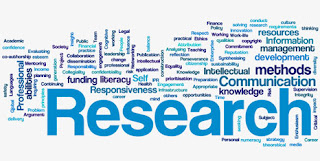Humanity in a Digital World
It is no secret that we live in a digital world. This digital world we live in is a massive. It has become a part of our reality that we exist in every day. The articles we read this week What is Digital Humanities and What's it Doing in English Departments? by Matthew G. Kirschenbaum and The Literary, the Humanities, the Digital: Toward a Research Agenda for Digital Literary Studies gave a very interesting perspective into this particular area of study.
All semester I had heard Dr. Zamora mention this term Digital Humanities but I really didn't understand what it meant. So I was very pleased to have the opportunity to learn more about it through these works. Initially, my first takeaway from the Kirschenbaum article was this visual image of humans in the digital world.
via GIPHY
As a middle school english teacher it never dawned on me that digital humanities was not welcomed in an English classroom. I welcome the opportunities to bring my class into the world. But I can see how some areas of academia would be hesitant to accept this. Even though Digital Humanities was shaping up to the be next big thing. There were about five points laid out as reasons why there is resistance to this movement. There is no denying that , "...the digital humanities is about a scholarship and a pedagogy that are collaborative and spend on networks of people and that live in an active life online." (Kirschenbaum 60) We no longer live life and/or learn in isolation. We are connected learners. I lived this first hand in my Networked Narratives class. One of my professors was not physically in the class yet we have had active meaningful and academic discussion via online networks such as Twitter, Hypothesis, Blogs etc.
Kirschenbaum ended is article by asking this question, "Isn't that something you want in your English department?"I found myself answering with an unequivocal yes.



Comments
Post a Comment